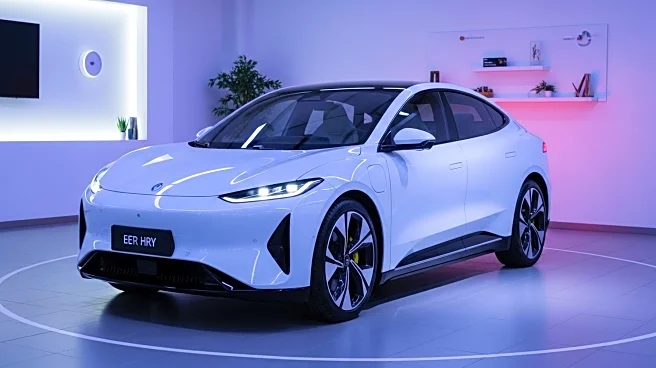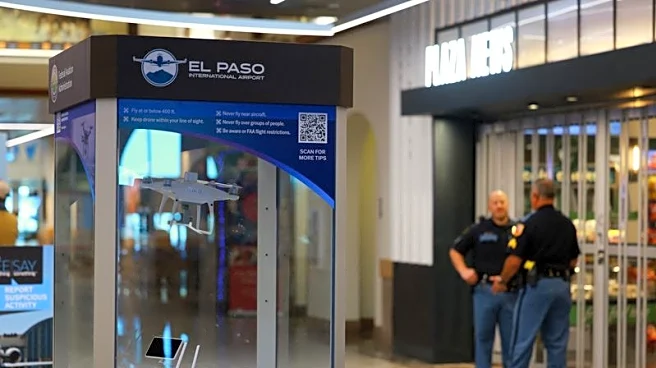What's Happening?
Tesla has introduced entry-level versions of its Model Y and Model 3, aiming to make electric vehicle ownership more accessible. The Model Y Standard Rear-Wheel Drive starts at $39,990, offering a range of 321 miles and a peak charging rate of 225 kW.
It features a simplified interior with touchscreen-controlled seat adjustments and manual cabin adjustments. The Model 3 Standard Rear-Wheel Drive is priced at $36,990, sharing similar specifications and design elements. Both models focus on affordability by reducing non-essential features, while maintaining Tesla's core driving experience and software capabilities.
Why It's Important?
This strategic move by Tesla could significantly impact the electric vehicle market by attracting first-time EV buyers who previously found Tesla's offerings too expensive. By lowering the entry price, Tesla is likely to increase its market share and drive competition among other EV manufacturers. This could lead to broader adoption of electric vehicles, contributing to environmental goals and reducing reliance on fossil fuels. The affordability of these models may also influence pricing strategies across the industry, potentially leading to more competitive pricing and innovation.
What's Next?
Tesla's introduction of more affordable models may prompt other automakers to reevaluate their pricing and feature offerings to remain competitive. As these models become available, consumer response and sales figures will be closely monitored to assess the impact on Tesla's market position. Additionally, Tesla's focus on software and driving dynamics may continue to be a key differentiator, influencing future product development and marketing strategies.
Beyond the Headlines
The launch of these models highlights Tesla's shift from luxury to accessibility, potentially reshaping its brand identity. This move could also influence consumer perceptions of electric vehicles, making them more mainstream and desirable. The emphasis on affordability may drive further innovation in battery technology and charging infrastructure, supporting the broader transition to sustainable transportation.

















